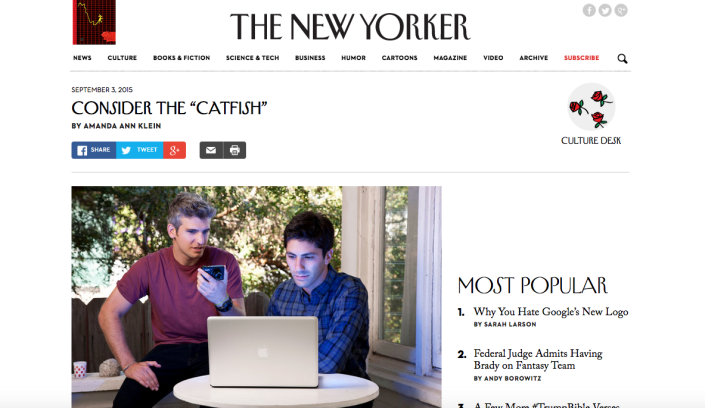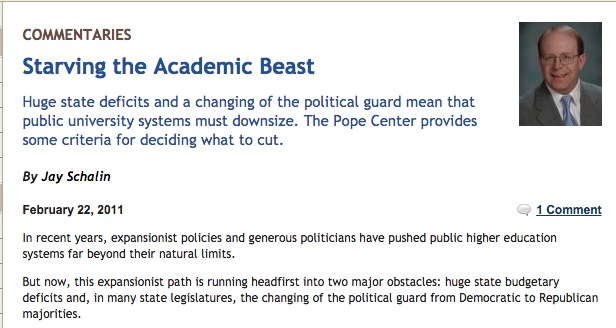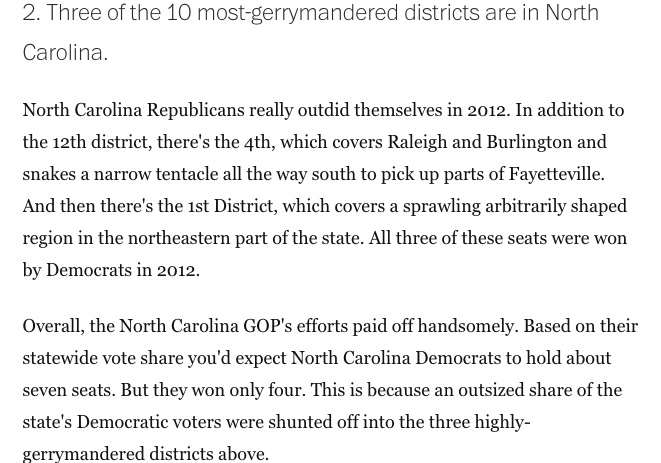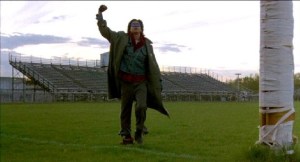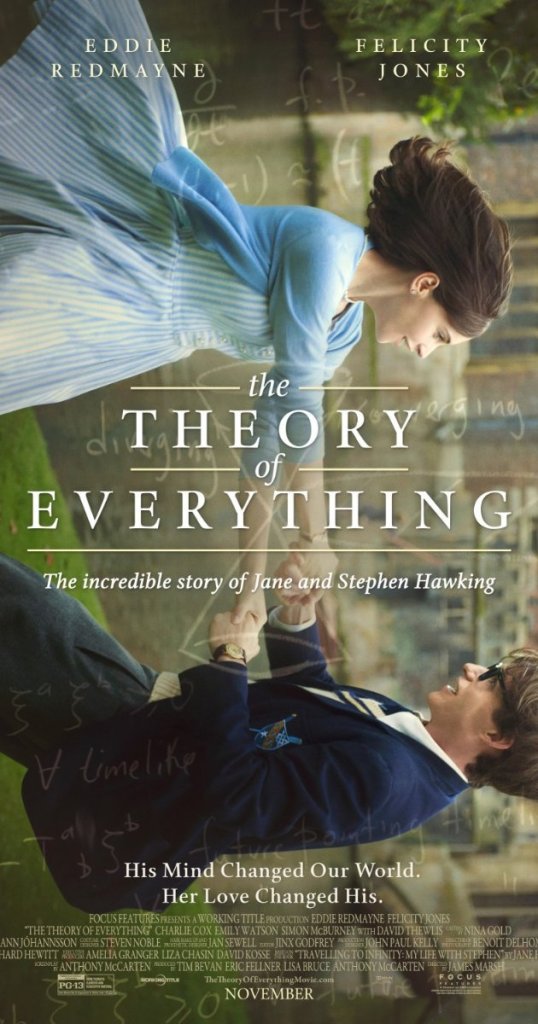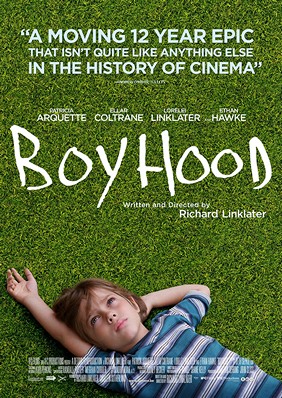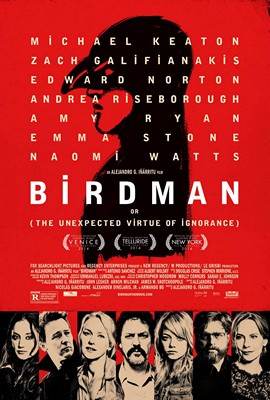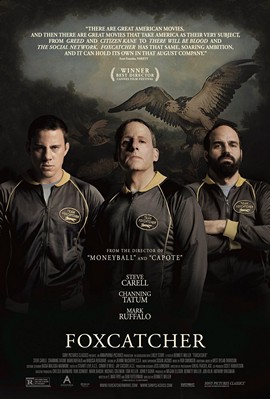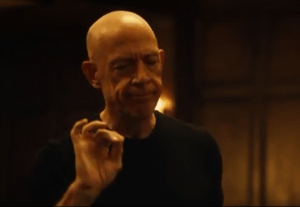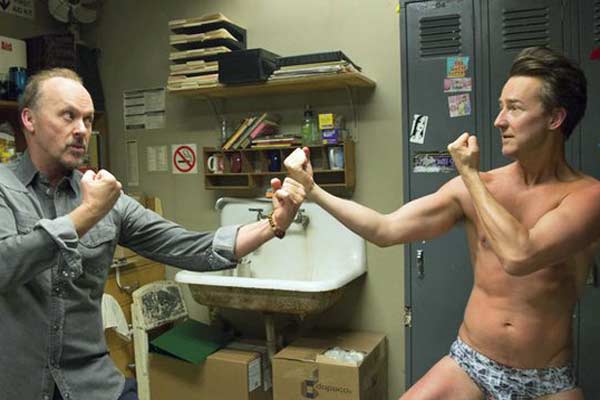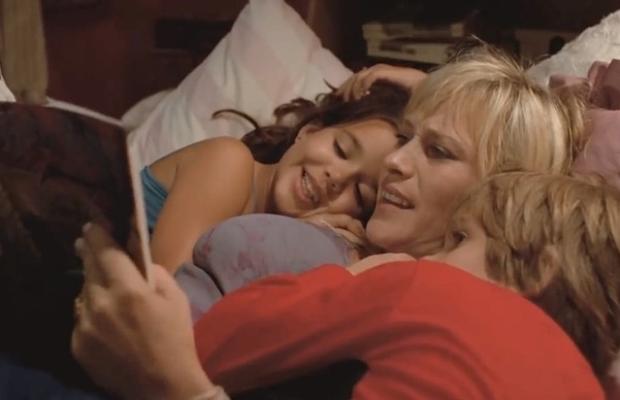Thirty Seasons of THE REAL WORLD

I know. I know. I haven’t written anything here in many months. But here’s the thing: work is busy. Also, no one pays me to write for this blog.
But you know who does pay me to write? The New Yorker. God bless them.
Here is my latest essay tied to my larger project on MTV and youth identities, “Thirty Seasons of The Real World.” Please read and share so maybe I can make more money writing and then can write some shit for free for you fine folks.
Click here to read the full piece.
Consider the Catfish
My dear blog, I truly apologize for my long absence. The summer is filled with family trips and preparations for fall courses and now the fall is here and I am busy with back-to-school meetings and student queries and the endless forms parents must fill out for their kids during the first weeks of school.
But I wanted to pop in to share some most excellent news–that a portion of my book project on MTV’s scripted identity cycle is currently live on The New Yorker. Yes, The New Yorker. They paid me and everything, because those folks are civilized. And as I’ve been published on the online version of The New Yorker (life goals: to get published in the print version), you all can read it for free!
Click here to enjoy.
“Clueless” and the End of Gen X

Did you know that Clueless was released 20 years ago? That’s the year I graduated from high school and the year, I think, Gen X was pushed out of the cinematic spotlight. I wrote about this for Salon:
“In an early scene in “Clueless,” a close-up reveals the sagging waistbands of a pack of young, SoCal teens, all loping to class in the signature Generation X uniform of baggy jeans, exposed boxer shorts and wallet chains as World Party’s cover of Mott the Hoople’s “All the Young Dudes” blares on the soundtrack. Then Cher Horowitz’s (Alicia Silverstone) chipper, California Girl uptalk—surely the vocal fry of the 1990s—cuts through the straining authenticity practiced by the pack:
Here, with a single toss of her healthy blond coiffure, Cher, the “Clueless” protagonist and moral center of Amy Heckerling’s 1995 adaptation of Jane Austen’s “Emma,” dismisses the entire ethos of Generation X. As Jeffrey Sconce explains: “X’ers have long been regarded as the most cynical, detached and ironic of population clusters. Boomers, the logic goes, got all the good jobs and prime real estate, while Gen Y (aka, “the Millennials”) got a renewed sense of earnestness, enthusiasm, and optimism. X marks the spot in between—those pissed off at baby-boomers for their narcissistic entitlement and pissed off at the Millennials for not being more pissed off.”
Read the rest here.
When My Daughter Asks Me if She Looks Fat
Last night, I had a rather disturbing conversation with my 8yo daughter. I was in the middle of doing the laundry and she walked into the room and asked me if I thought she looked fat. I’ve been dreading this question since I became pregnant with her. This is how women destroy themselves.
I decided to write about it over at Medium’s Human Parts.
You can head over there to read it by clicking HERE.
Starving the Beast: The UNC System in 2015
I’m writing this post from inside a bunker. Outside the storm is raging but I’m hunkered down, amongst my canned goods and bottled water, waiting for the end of the UNC system to arrive. Many of my fellow professors may be looking out their windows right now, and the sun is shining and the birds are singing. But I assure you, in North Carolina, the sky is falling. Fast.
I have been a professor at a state university in North Carolina for the last 8 years. This is the longest I’ve ever held the same job—or any job for that matter. This was my first job out of graduate school, the golden ticket. I was finally on the tenure track!
At the time of my job offer, I was especially excited to join the UNC system, widely considered the “jewel” of North Carolina:
“The [UNC] university system has not only educated thousands, it has been an economic engine, helping spawn entrepreneurs such as Jim Goodnight and Dennis Gillings, attracting huge research grants and making the Research Triangle Park possible.
It was not a given that a largely poor, rural state such as North Carolina would create a great university system. It took a sustained effort by generations of business and civic leaders to make it so.”
There are 17 universities that exist under the UNC umbrella, a move deemed, in 1971, to be a “political miracle” and which ultimately “turned the state of North Carolina into a national leader in higher education, and in the process, transformed the state into one of the most prosperous in the South.” And yes, I felt a true sense of pride when I accepted a job here in 2007. In fact, I had two job offers in 2007 (oh 2007, you were great!): one from Greenville, North Carolina and one from outside Detroit, Michigan. In 2007, North Carolina seemed like an infinitely more attractive choice based solely on the local economy, the amount of higher education funding it appeared to be receiving (at least at my hiring institution), and the overall prestige of the UNC system.
In 2007, pre-Recession academia was failing, but no faster than many other long-standing institutions. And even during the 2008 Recession, when all North Carolina state employees took a paycut and travel money was slashed and low-enrollment classes were cut, the waist cinching felt reasonable and necessary and collegial, like we were all doing our part to muddle through the Recession together. Truly, this was the attitude in 2008. The budget cuts were temporary, we were told. Things will get better, we were told. We just needed to sit tight and be patient and wait for the economy to improve, we were told. Then? Everything would go back to normal.
I’ll admit that I watched these heavy cuts tear through my university from the frazzled standpoint of a pre-tenure mother of two young children. I knew that things were bad, but my biggest concern wasn’t salary compression or gendered wage inequality or the exploitation of fixed term faculty (all major problems at my university). No, to be honest, my biggest concerns during those years were purely selfish: finishing my book and getting more than 3 consecutive hours of sleep at a time. I was exhausted and detached, like so many of my colleagues. We all knew that the cuts seemed unfair but we also knew that things would likely get better soon.
Well, they didn’t. In fact, things got much worse. In 2011, former UNC System President Erskine Bowles warned of the dangers inherent in the radical cuts that were being made to the state’s university system:
“We not only have to provide an education that is as free from expense as practicable, but we’ve also got to provide a high-quality education…I’ve always believed that low tuition without high quality is no bargain for anyone. It is not a bargain for the student, and it is not a bargain for the taxpayer”
Bowles’ words have turned prophetic. The North Carolina legislature’s short term money-saving cuts have had longterm negative impacts on public education in this state. Here are just a few (and trust me, there are far too many to list here):
- In 2013 the NCGA voted to stop offering pay raises to K-12 public teachers who earn a Masters degree, a move which discourages professional development. In an ironic twist, enrollments in my department’s Masters program, a program which catered to many local teachers looking to improve their pedagogy and their salary, have dropped significantly. A true lose/lose scenario for NC’s teachers and students.
- North Carolina has more Historically Black Colleges and Universities (HBCUs) than any other state in the country (11) but cuts to higher ed funding in the state are preventing many students from being able to attend these schools. As a result, HBCUs like North Carolina Central University and Elizabeth City College are seeing significant drops in enrollments. Johnny Taylor, president of the Thurgood Marshall College Fund, argues that enrollment declines are particularly devastating for HBCUs. He explains:“If you take a school like N.C. A&T, where 50 percent of the country’s undergraduate black engineers come to one school, it would seriously impact our workforce diversity initiative if that school didn’t exist.” Indeed, Elizabeth City College, which lost 10% of its funding in 2013-2014, has been teetering on the edge of being shut down all together.
- Faculty who can leave, do leave. For example, one of my colleagues, a dear friend and a brilliant scholar, left our department in 2011 in order to chair another English department. He simply could not support his family on the salaries paid to English faculty. Shortly after leaving our department this colleague made an historic discovery, was profiled in The New York Times, and was awarded a research fellowship at Harvard. When you don’t compensate your best faculty, they leave. End of story.
- Faculty, like me, who have thus far been unable to secure employment outside of North Carolina, have only had a 1.2% pay increase since 2008. That means that tenured faculty like me, who have 8 years of experience teaching the university’s student body and who have won teaching and research awards, are actually earning less today than we did when we were first hired 8 years ago. We are being penalized for our experience and our dedication to the university. I have been explicitly told that the only way I will see a raise is if I snag a competing job offer. Of course, a female colleague of mine did get a competing job offer, in an effort to raise her salary, and my university basically told her to have a nice life. So she’s still in NC, making what I make.
- Funding for travel has been scaled back or eliminated all together. For example, I have been planning to attend a prestigious academic conference in Ireland this summer, during which I present research from my next book project. Attending conferences like these are essential for scholars to gain feedback and share their research with others. But, there are no more international travel grants, as I just learned recently when I tried to apply for one:

- Fixed term instructors are losing contracts at an alarming rate.
- All faculty are being asked to teach more classes, filled with more students, for no additional compensation.
The list goes on and on.
But, here are some things the North Carolina General Assembly did vote for recently:
- allowing guns on school grounds
- tax breaks on yacht sales
- $41,000 tax breaks for those making $1 million or more per year
- restrictive voter registration rules
- requiring middle school teachers to discuss “sensitive and scientifically discredited abortion issues with students.”
But perhaps what is most offensive in this climate of austerity and sacrifice is when the UNC Board of Governors recently recommended salary increases for the UNC system’s highest paid employees, including presidents and chancellors:
“Under the new parameters, the salary for a UNC president would match that for chancellors at the two flagship research campuses – UNC-Chapel Hill and N.C. State University. The levels could range from a minimum of $435,000 to a maximum of $1 million, with the more likely market range of $647,000 to $876,000”
Maybe I’m biased, but I was always under the impression that the most important commodity at a university is the quality of its teaching staff, not the quality of its administrators. When I graduated from college in 1999 I didn’t think back fondly on all the administrators I had encountered along the way. So what explanation could possibly be given for proposing that university administrators deserve “competitive salaries” but the university’s teachers don’t? Why is the Board of Governors only concerned with attracting and retaining top administrative talent, not top teaching or research talent?
What, exactly, is going on? My university, you see, is very slowly being converted from an institution of education into a business. “Can’t it be both?” some of you might be thinking? “Wouldn’t academia, that dying giant, benefit from trimming the fat and keeping an eye towards pleasing the customer?” The answer, as someone who has slowly watched her university transition from a university into a Wal Mart over the last 8 years, is a resounding no.

Now, I can’t speak for every professor in the UNC system but I can tell you that I’ve witnessed these practices firsthand and they are destroying this university by slowly sucking the lifeblood out of its faculty. That metaphor may feel hyperbolic but trust me, it’s accurate. Indeed, it is the very metaphor employed by North Carolina’s own policy makers.
Back in February 2011, Jay Schalin of the Art Pope Center (which is essentially North Carolina’s own personal Koch Brothers), wrote an article entitled “Starving the Academic Beast,” which details the ways NC can “restore the 17 campus University of North Carolina system to its proper size and role.”
So the stated goal of the Art Pope Center is, indeed, to “starve the beast.” But one has to wonder: since the North Carolina State constitution states that “The General Assembly shall provide that the benefits of The University of North Carolina and other public institutions of higher education, as far as practicable, be extended to the people of the State free of expense” AND since public education has consistently proven to be the one enterprise that consistently provides a significant return on investment, then what THE HELL are these people doing and WHY are they doing it? Do they simply wish to starve the “beast” down into a nice, lean fighting weight? No, my friends, they want us to starve to death. And they are succeeding.
It’s also worth pointing our that 3 of the 10 most gerrymandered districts in the country are right here in North Carolina:
That means we will likely have to accept the current policies (which only seem to be getting worse and worse) until at least 2016. This sad state of affairs has been incredibly demoralizing for me and for my colleagues. Many folks are resigned to the way things are, shrugging their shoulders and saying, “Why fight? There’s nothing to be done.” Fixed term faculty, whose precarity renders them most vulnerable to the whims of our legislature and, ironically, makes them least able to speak up about it, are worried about paying their bills. As my former colleague, John Steen, a visiting professor in my department who, despite being a brilliant scholar and talented teacher, must now pursue a different line of work, writes:
“Currently, over 52 percent of ECU faculty are fixed-term, and that number’s rising. This means that over half of the ECU faculty can leave the classroom after final exams uncertain of whether they’ll return for the next semester. Nationwide, 31 percent of part-time faculty earn near or below the federal poverty level. For raising a family, paying rent, and for supporting students throughout their ECU careers, that’s not nearly enough.”
Tenure track faculty, who have yet to submit their tenure materials, are worried about jeopardizing their one chance at academic job security (most of us on the tenure track are aware that we are lucky to have any job at all). We’re too scared to speak and too scared to be silent.
Well, that’s not exactly true.
As a result of these draconian policies, which both implicitly and explicitly seek to “starve” the great beast that is public education in North Carolina, some of us have started to get mad. And we’re trying to make some noise. And a lot of us have tenure, the one thing, so far, that the General Assembly hasn’t taken away.
So this post is for you, my tenured friends. We are small in number—indeed, we are an endangered species. But I am calling on you now to speak up and get involved. Talk to your colleagues, your department chairs and your deans. Write letters to the editor of your local paper and to your student paper. Write to your legislators. Talk to your students about this–if anyone should be outraged about having to pay more tuition for less and less instruction it should be them.
But really, shouldn’t this outrage all of us? An affordable public education is the promise we made, collectively, as a state, many decades ago. We pay taxes for this education. This university system belongs to US, the people of North Carolina. So why are we allowing this wonderful, economy-boosting, prestige-raising, research-generating “beast” to starve? Are we really helpless? Have we really been stripped of all options? No. Because as long as we can speak and type and scream, we can fight. Won’t you join us?
“THE BREAKFAST CLUB”, 30 YEARS LATER: A CONVERSATION ACROSS GENERATIONS
THE BREAKFAST CLUB just turned 30! I wrote a short piece about the experience of teaching a film I adored in my youth to a brand new generation of students. The big surprise? They loved it as much as I do:
“It’s a hard thing, teaching students of another generation about a movie you loved as a child. Indeed, whenever I teach a film that I loved passionately in my youth—”E.T.”, “Star Wars,” and “Fast Times at Ridgemont High”—I try to divorce my affective attachment to it from my pedagogy. It’s not that I don’t let students know when I truly love a film—I gush about “Breathless” and “Double Indemnity” and “Killer of Sheep.” It’s just that I don’t trust the tastes I cultivated during my youth, back when my raw, hormonal heart dictated the music I listened to and the movies I watched. My undeveloped cinematic palate is somehow less authentic, at least to the teacher in me, than the tastes I formed post-college, when I began to study the cinema as a critical object. So I overcompensate for the love object. I try to point out its flaws ahead of time, to prepare myself for disappointment. I am sure they will find “The Breakfast Club” racist, close-minded, and unsatisfying. They will surely shit on my youth.”
Read the full piece here.
Plagiarism, Patchwriting and the Race and Gender Hierarchy of Online Idea Theft
Several months ago I published a 2-part guide to the academic job market right here on my blog (for free!!!!!!!!!!), as a way to help other academics explain this bizarre, yearly ritual to family and friends. Indeed, several readers told me that the posts really *did* help them talk to their loved ones about the academic job market (talking about it is the first step!). Yes, I’m working miracles here, folks. And then, this happened:
“A few months ago, as I was sitting down to my morning coffee, several friends – all from very different circles of my life – sent me a link to an article, accompanied by some variation of the question: “Didn’t you already write this?” The article in question had just been published on a popular online publication, one that I read and link to regularly, and has close to 8 million readers.
Usually, when I read something online that’s similar to something I’ve already published on my tiny WordPress blog, I chalk it up to the great intellectual zeitgeist. Because great minds do, usually, think alike, especially when those minds are reading and writing and posting and sharing and tweeting in the same small, specialized online space. I am certain that most of the time, the author in question is not aware of me or my scholarship. It’s a world wide web out there, after all. Why would someone with a successful, paid writing career need to steal content from me, a rinky-dink blogger who gives her writing away for free?
But in this case, the writer in question was familiar with my work. She travels in the same small, specialized online space that I do. She partakes of the same zeitgeist. In fact, she had started following my blog just a few days after I posted the essay that she would later mimic in conceit, tone and even overall structure.
Ethically speaking, idea theft is just as egregious as plagiarism, especially when those ideas are stolen from free sites and appropriated by those who actually make a profit from their online labor.
When pressed on this point, the writer told me that she does read my blog. She even had it listed on her own blog’s (now-defunct) blogroll. But she denied reading my two most recent posts, the posts I accused her of copying. Therefore she refused to link to or cite my blog in her original piece, a piece that generated millions of page views, social media shares, praise and, of course, money, for both her and the publication for which she is a columnist.
So if a writer publishes a piece (and profits from a piece) that is substantially similar to a previously published piece, one which the writer had most certainly heard of, if not read, is this copyright infringement? Has this writer actually done something wrong?”
Well, Christian Exoo and I decided to try to find out. To read our article “Plagiarism, Patchwriting and the Race and Gender Hierarchy of Online Idea Theft” at TruthOut, click HERE.
My Mom’s 2015 Oscar Picks
My Mom takes her yearly Oscar picks seriously (you can read her previous picks here and here). She tries to see all of the critically acclaimed films. She even attended a screening of the Live Action Short Films. Her pick? Boogaloo and Graham (Michael Lennox and Ronan Blaney). I’ll have to take her word for it. You can watch that short here:
Amanda: We need to start by putting our cards on the table by telling the readers what we haven’t yet seen. I’ll admit, 2014 was a very busy year for me, and many of the nominated films never even played in my city, so while I tried to cram in as many of these as I could before our annual interview, there are still a lot I never saw. The critical darlings I have yet to see include: The Imitation Game (Morten Tyldum), Foxcatcher (Bennett Miller), Still Alice (Wash Westmoreland), The Judge (David Dobkin), Wild (Jean-Marc Vallée), and Inherent Vice (PT Anderson).
Mom: Of the big movies, I haven’t seen Selma (Ava DuVernay) or Still Alice. Everything else, I have seen.
Everything else?
Everything else.
Impressive! So what is your pick for Best Picture?
It’s very difficult this year; I loved all of them. One of my favorite films through the entire process was Theory of Everything (James Marsh). I thought it was phenomenal the way Hawking’s life was portrayed. But, recently I’ve changed my mind a little, maybe because I’ve been reading the reviews and editorials and American Sniper…
[loud groan]
…was one that they truly loved because it managed to bring people back into the movie theaters.
It did, but is that what a Best Picture is? A film that a lot of people go to see? Because if that’s the case, then 50 Shades of Grey (Sam Taylor-Johnson) will win the Oscar for Best Picture next year.
Good point. But I loved American Sniper because it’s portrayal of an American soldier going to war and what he had to deal with and the effect on him as well as his family, was so powerful.
I agree with you there. It was powerful. But for me, the big problem with American Sniper is that I thought it’s message was very confused. I don’t know what Clint Eastwood thought he was doing with that movie because it seems to be telling two very contradictory stories about contemporary war. I thought the film glamorized Chris Kyle (Bradley Cooper), who was a devoted soldier and an excellent marksman, but what was problematic for me was that it also glamorized what he was doing: shooting people. I think it’s possible to honor the soldier and tell his story without glamorizing killing. Having said that, it was a well-made film because Eastwood is a good filmmaker.
But Eastwood is giving us the perception of the soldier. If my son, or grandson, or granddaughter, were in the army and going in and out of those homes, I would like a sniper there to protect them!
I’m not disputing the need for a soldier like Chris Kyle. I’m disputing the way Eastwood depicted the act of killing, the way he glamorized it. I think that was irresponsible and I also think that’s precisely why the film is so popular right now.
Well, look, Eastwood was just following the book written by Chris Kyle, that’s all he did…
[side eye]
Look, we’re not going to agree on this one. But still, I keep coming back to Theory of Everything. That’s my pick for Best Picture. I know you didn’t care for it.
Can you tell me something that was good about Theory of Everything that *doesn’t* include Eddie Redmayne’s performance?
Well, it’s the story of this genius and what he endured and what he’s accomplished and the fact that he’s still alive. I thought it was a beautiful film.
Let me pause you right there. I agree that Stephen Hawking’s story is amazing. The fact that he was struck with this debilitating disease and the fact that he was also a genius who profoundly shaped the way we understand the universe, those are two remarkable stories happening to the same man at once. But that’s my point — Hawking’s is a great story on its own, regardless of how the filmmaker tells it. I don’t feel like the movie did anything interesting with this truly remarkable story. I think Hawking deserves a better film than this. Eddie Redmayne’s performance is the only redeemable part of the film for me.
I should also say that one of the other best films I saw this year was Whiplash (Damien Chazelle).
I was very “meh” on Whiplash.
I thought the portrayal of Fletcher, by J.K. Simmons, and this young vulnerable boy (Miles Teller) at a music conservatory — and this was obviously supposed to be Juilliard — was so amazing. We get to watch this professor, who knew he found a great talent who was not responding, and the way he chose to address that. Definitely one of the most memorable films that I’ve seen.
I’ll give it that. And frankly, I thought Miles Teller, who plays Andrew, should have been given a Best Actor nomination…
I don’t know about that — he was so overshadowed by Simmons.
[angry noises]
And you know, the problem for me this year is that there were a lot of really wonderful films. It’s hard to pick.
I disagree! I was disappointed with pretty much everything I saw.
So let’s talk about Boyhood (Richard Linklater). I thought it was very cute, very nice, how they filmed this boy from when he was a child up through his young adulthood but…
[ she trails off, shrugs her shoulders]
I agree. I love Linklater — Dazed and Confused (1993) is one of my favorite films — and the performances in Boyhood were just fine. But had this been a film with different actors playing the role of Mason (Ellar Coltrane), I don’t think I would have given it a second thought.
Exactly. It was very sweet, but that’s all it was.
Boyhood was very satisfying. I really enjoyed the cinematic experience of watching a character age over time. Just lovely. But now that the film is over? I just don’t care. I mean, whatever, he grew up, so what?
Right. Another film we haven’t talked about is The Imitation Game, which was superb because of Benedict Cumberbatch. Other than that? It wasn’t that great.
And we can’t base a Best Picture pick solely on the strong performance of the lead actor. Let’s chat briefly about Grand Budapest Hotel (Wes Anderson). I am huge Wes Anderson fan. But I fell asleep during this movie and I had no interest in waking up.
I thought it was stupid!
I also thought it was stupid. I guess we can move on then?
I’d like to talk about Selma even though you haven’t had a chance to see it yet. I thought the film was well-directed, but there was nothing remarkable about it. The best thing about it — beyond the story — was the performance by David Oyelowo. I thought he was really great in this role and that he absolutely should have been given a Best Actor nomination. Eddie Redmayne remains my Best Actor pick but Oyelowo’s portrayal of Martin Luther King, Jr. was subtle and powerful at the same time. It would have been very easy to get it wrong — after all, we’ve all seen footage of King giving speeches on television, but Oyelowo did a lovely job. But as for the film itself? Like Theory of Everything, Selma tells a remarkable story in a rather bland film. A Best Picture has to do something other than pick a good story. It’s also about how the story is told.
Let’s move on to the only movie that I think should never win Best Picture and that is Birdman: The Unexpected Virtue of Ignorance (Alejandro González Iñárritu).
And that is actually my pick for Best Picture.
Ooooooooooo…
And let me tell you why. It was the only movie from the Best Picture list that really stuck with me after it was over. The movie is essentially, except for the very end, a single take (or what appears to be a single take). The movie never pauses. To achieve this — beyond the use of CGI to mask the moments where the cuts actually took place — Iñárritu and his crew had to plot out where every actor had to be at every moment. Everyone had to hit their marks at the exact right time. To do all that, to coordinate all that with everyone on set, is amazing. And then on top of the technical feats, I thought the story of an aging action hero trying to do an adaptation of a Raymond Carver story for the stage, was really smart and timely. It stuck with me.
So you want Birdman?
Yes.
As Best Picture of the year?
Yes.
[side eye]
So let’s talk quickly about the acting categories. We’ll start with Best Actor in a leading role.
This one is tough for me. Through the entire season, Eddie Redmayne has been my choice. But, there was another actor whose performance has haunted me, and that’s Steve Carell in Foxcatcher. He is very disturbing — you hate him. He attracts these young men who are wrestlers and he wants to be their coach, their father, everything. I went home and Googled this guy, duPont, and Steve Carell looked, talked, and acted just like this man. One of the most disturbing films I’ve ever watched. But his performance of this mentally deranged man was really impressive. Still, Redmayne is my pick.
Me too. He truly gave the best performance. And granted, the role provided a lot of opportunities for Redmayne to demonstrate his acting skill. He had to both impersonate a living person whose demeanor and expressions are well known and it was also a very physical role, mimicking the impact of ALS on his character’s body. It was pretty amazing…
Amazing!
So we agree on that. Let’s move on to Best Supporting Actor. I haven’t seen two of these movies, so…
Well, I’ve seen all of these films and if JK Simmons doesn’t win for Whiplash then I am done with these interviews.
Really? You’re willing to give up ever appearing on this blog again…
You’ve seen Whiplash?
Yes, but…
Well then. I would accept no pay to keep me back in [your blog]…
So I’m going to have to call the Academy is what you’re saying?
Uh, yeah.
Wow, that’s a shame, because I think Ed Norton should win for Birdman.
[ noises of disgust, growls?, other indistinguishable noises]
Why can’t I have my pick?! On top of all the crazy stuff that was going on in that movie, all I could think about was Ed Norton. He was electric in that film: funny, twitchy, narcissistic. So dynamic…
I can’t even remember him from that film…
WHAT? We clearly didn’t see the same movie. He’s my pick, he’s not going to win…
He better not…
But he’s my pick all the same. Let it be noted.
[blows a raspberry]
Best Actress. Now I’ve only seen two of these so I don’t feel qualified to make a pick.
I’ve not seen Still Alice but I hear Julianne Moore is great.
She is great in everything she does. Let’s just both award this to Julianne Moore.
Yes, let’s do it! I’ll you why: I wasn’t impressed with any of the female roles this year.*
Know why? Because all the female roles were shit.
Well, you might be right.
Best Supporting Actress. Once again, I haven’t seen two of the nominees but I think Patricia Arquette deserves this one. I was so fascinated by her character. We meet her as this struggling single mother who gradually collects these degrees and then becomes an intellectual in her own right. But she keeps marrying the worst men.
I’ve seen all of them and none of them impressed me. They were all just there. Sure, we’ll give it to Patricia.
Closing thoughts?
I just really hated Birdman.
Noted.
FIN
*The day after this interview, Nana admitted to being a little hasty with her Best Actress pick. Over breakfast she told me she wanted to change her pick to Reese Witherspoon in Wild. She also called me from the road today to be sure that change was noted. Please note it.
After the Second One Comes
I don’t normally cross post between my blogs, as the readers shift for each. But today I very much want to share a story I wrote to illustrate a series of photographs my then-3-year-old daughter took just after the birth of her baby brother. If such things interest you, I encourage you to head over to Tell Us A Story and give it a read.
Here is how it begins:
“Only years later did I think to upload any of the hundreds of photos my daughter took with her brand new Fisher Price “Kid Tough” digital camera during the first few months of 2010. In addition to her burgeoning interest in amateur photography, it was during this time that my daughter learned what it meant to have a sibling, a brother who arrived, angry and red, late in the evening on that January 13th.”
Read the rest by clicking here.
Oh Captain, my Therapist!
Note: a big thanks to Vimala Pasupathi for the constructive conversations that culminated in this post.
If you are a college-level educator, you have most likely experienced the following scenario: a once-promising student stops attending class or turning in her assignments. You know this student, her work ethic and temperament, and thus, her uncharacteristic behavior concerns you. You send the student several email inquiries — gentle nudges about upcoming assignments, reminders that her grade is free-falling, offers to chat during your office hours. Finally, the student shows up in your office looking wan and shaken. She tells you she’s been having trouble getting up in the morning. The thought of leaving her bed exhausts her. She has no energy. She can’t concentrate. She is missing all of her classes, not just yours. She is in danger of failing the entire semester and losing her financial aid and if she loses her financial aid, she tells you, she’ll have nowhere to live. She looks at you, with tears in her eyes, grateful to finally have someone to talk to. It’s clear that this is the first time she’s articulated these spiraling fears to anyone out loud. “What should I do?” she asks you, and she means it. She wants you to tell her what she should do.
According to a 2012 survey conducted by the National Alliance on Mental Illness (NAMI), 64% of students polled said they dropped out of college for a mental-health related reason. A 2013 poll conducted by the Association for University and College Counseling Center Directors found that the top mental health concern among college students was anxiety (41.6%), followed by depression (36.4 percent) and relationship problems (35.8 percent). These numbers, apparently, have been on the rise since the mid-1990s, and Psychology Today’s Gregg Henriques believes it has become a full-scale crisis: the College Student Mental Health Crisis (CSMHC). These claims are not news to those of us who work with college students every day. Every year more and more students miss classes, entire semesters and even drop out of school due to mental health issues. And those are just the students who openly discuss their mental health struggles. Many more remain silent and thus, undiagnosed and therefore, untreated.
These statistics are certainly troubling for professors who work with these students on a daily basis. But, perhaps, just as troubling are the increased responsibilities piled on to the already overburdened instructor, a responsibility which no one is talking about. At the same time that universities are asking more and more of faculty in terms of assessment, recruitment and program development (on top of teaching, service and gasp! research), professors are now increasingly finding themselves in the position of playing armchair psychologist to their students. For those of us who work at universities catering to low-income, first-generation, or non-white college students, the odds that these students will have undiagnosed mental health struggles is even greater. Yet most faculty working today are not provided with the resources (in terms of training, time or, most importantly, financial compensation) to competently deal with this crisis in student mental health. And make no mistake: this has, for better or worse, become our responsibility. Paul Farmer, chief executive of Mind, believes:
Higher education institutions need to ensure not just that services are in place to support mental wellbeing, but that they proactively create a culture of openness where students feel able to talk about their mental health and are aware of the support that’s available.
Yes, today the college instructor frequently finds herself in the difficult position of having to simultaneously play the role of psychiatrist, family counselor, financial advisor, and life coach, all while having to make very real, very difficult decisions about the student’s academic future. The standard advice from the university is to send the student to their mental health services, but these campus centers often have very long waits and/or find themselves underfunded and understaffed. As Arielle Eiser reports:
College counseling centers are frequently forced to devise creative ways to manage their growing caseloads. For example, 76.6 percent of college counseling directors reported that they had to reduce the number of visits for non-crisis patients to cope with the increasing overall number of clients.
More often than not, recommending that the student head to a campus counseling center means simply passing the buck. In my personal experiences at least, that student will disappear from campus, becoming one of the 64% who leave college due to mental health issues.
As an academic advisor my job is to shepherd a group of students through their English major — they must meet with me each semester to discuss their schedule, their progress towards graduation, and their academic standing. Each semester I get a list of student names, along with their registration code for the next semester (a process which ensures that students must meet with me prior to registering for classes). It always breaks my heart when I look at that list of advisees and see the ones with no registration code next to their names. These are the students who have not re-enrolled for the semester. These are the students I have lost.
If only I had checked in on that student after our last tearful meeting. If only I taken the time to make sure she was still going to class, turning in her work, registering for her next semester. A single email, hastily written and sent, might have been the difference between staying in or dropping out. These are the kinds of emails my best self sends, the self I wish I were all the time, but which I am only when my deadlines are met, my children are healthy, and I’m caught up on Downton Abbey. These unmade choices torture me because they exist as possibilities, reminding me of everything I might have done and didn’t. My job and salary don’t depend on sending those emails. Therein lies the rub. When students fail and drop out of the system, who is to blame? It’s the student, sure, but it’s also those of us who are tasked with advising them. And it is this unpaid, unmarked labor that becomes “key” to student retention, a job which has, quite suddenly, been shuffled onto my already very full plate.
So much of the labor expected of faculty today, both on and off the tenure track, is unmarked and unpaid. As our salaries stagnate, our job descriptions inflate exponentially. Although middle management, the dreaded Associate Deans, has skyrocketed over the last few years, it’s ironic that faculty are being asked to take on more and more of the management burden. Our department chairs no longer assess our research, service and teaching contributions. Instead, we assess ourselves and turn in those documents in to our chair, who then quickly rifles through our summaries, offering us arbitrary numbers meant to represent our achievements. The university no longer assesses the value of our individual programs. Instead, we assess our programs — through Byzantine rubrics and committees and “objectives” — and then turn these documents in to our middle-management overlords for quick perusals. The university is no longer tasked with recruiting new students to our programs. No, that is now my responsibility, despite the fact that I have no training in marketing or recruitment. I am expected to spend my work hours (the hours for which I pay for childcare) pitching English courses to community college students or thinking of sexier ways to describe my courses to undeclared majors. And then, if my classes don’t fill up? Yeah, that’s my fault. And I’m told I have to tach freshman composition.
Almost every week I receive a new email announcing the formation of yet another subcommittee on which I am supposed to volunteer to serve. I should volunteer, you see, because we all need to pitch in together and help! We’re a team! Almost daily I receive an email inviting me to attend another training workshop that will show me how to better assess my program or better manage the time that is increasingly being taken up with deleting emails inviting me to time management seminars. There is simply not enough time.
So how do I help my anxious, depressed, spiraling-out-of-control students when I don’t even know how to help myself with these problems? If I ignore the students’ cries for help, their mental health is compromised. If I help them, mine is compromised. This zero-sum game involves just me and the students. One of us is going to lose and right now, it’s both of us.
- ← Previous
- 1
- 2
- 3
- …
- 14
- Next →
